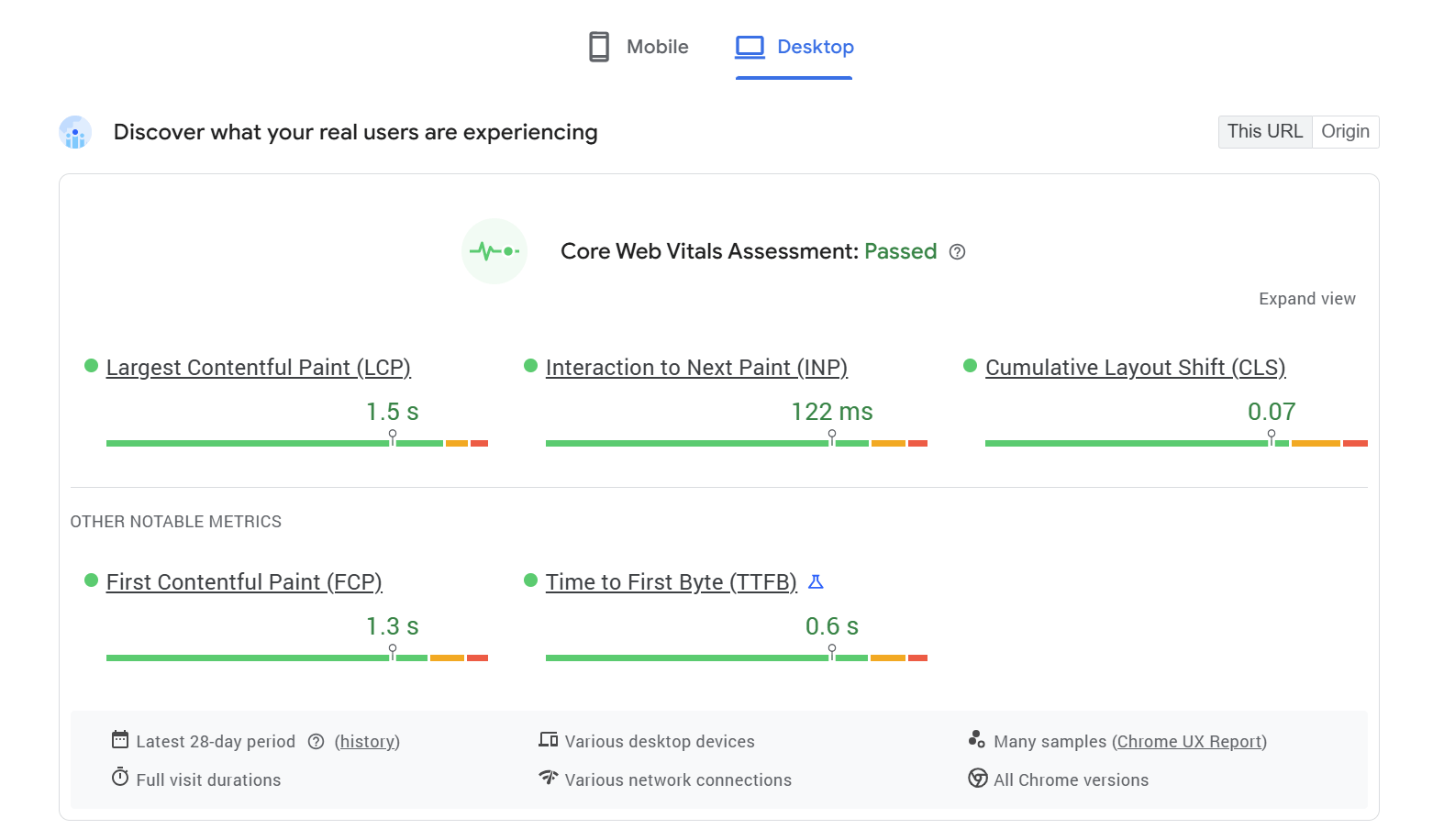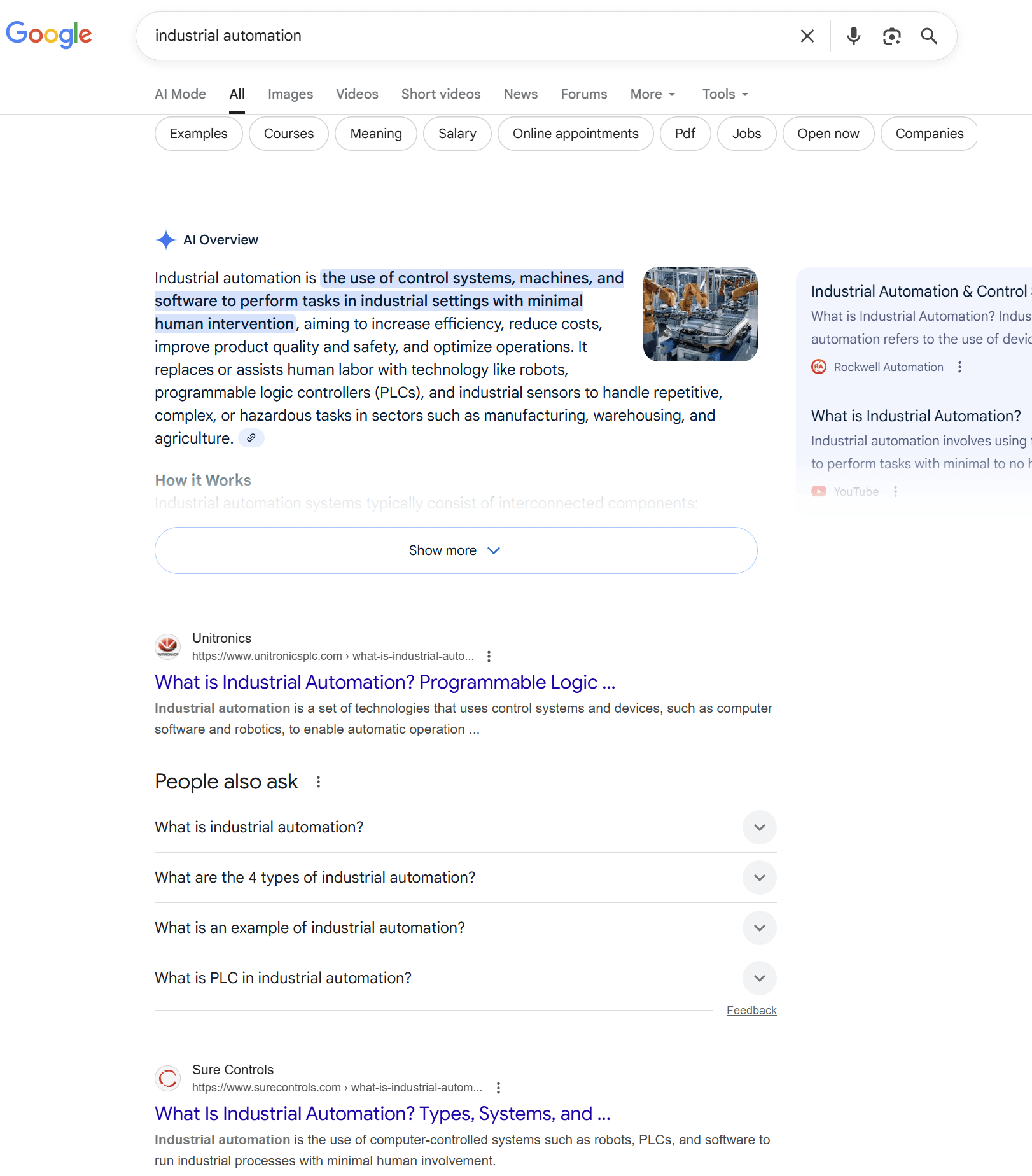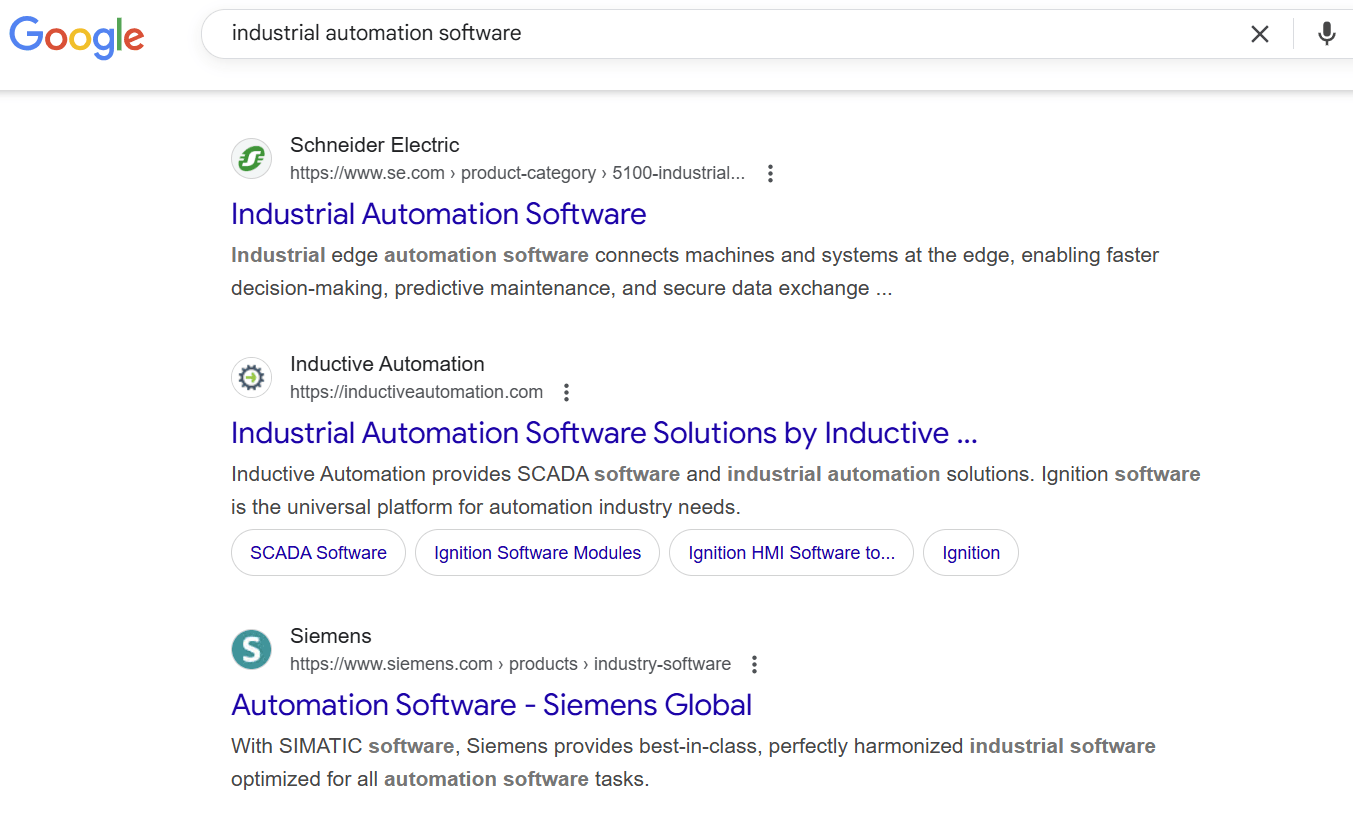-
 Published: Mar 2, 2026
Published: Mar 2, 2026
-
 8 min. read
8 min. read
-
Summarize in ChatGPT
-
 Thaakirah Abrahams
Thaakirah Abrahams WebFX Editor
WebFX Editor
- Thaakirah Abrahams is a Marketing Editor at WebFX, where she leverages her years of experience to craft compelling website content. With a background in Journalism and Media studies and certifications in inbound marketing, she holds a keen eye for detail and a talent for breaking down complex topics for numerous sectors, including the legal and finance industries. When she’s not writing or optimizing content, Thaakirah enjoys the simple pleasures of reading in her garden and spending quality time with her family during game nights.
- Is SEO dead in 2026? No, SEO is not dead. It’s evolving as strategies and technology change, with search engines continuously growing to better serve users and SEO adapting alongside these updates through its inherent scalability and flexibility.
- Why does SEO remain relevant despite AI search engines? ChatGPT and other AI platforms still rely on traditional search engines to gather information from relevant webpages, Google maintains 79.1% of the global search market, and while traffic may decrease, visitors are more qualified leads who haven’t found answers in AI Overviews.
- How are Core Web Vitals affecting SEO rankings? Google measures page performance through Core Web Vitals including Interaction to Next Paint (200 milliseconds or less), Largest Contentful Paint (2.5 seconds or less), and Cumulative Layout Shift (less than 0.1) to ensure seamless user experiences.
- What is the importance of multi-platform optimization? Users now search across TikTok, voice assistants, AI engines like ChatGPT, and forums like Reddit, making it crucial to optimize content with LLM SEO best practices—including clear structures, scannable formats, and authoritative insights—so AI platforms can cite your information.
- How does search intent impact modern SEO success? Google prioritizes matching user search intent (informational, commercial, navigational, or transactional) and will avoid ranking content higher if there’s a disconnect between your content’s intent and primary keyword, making thorough keyword research essential for proper targeting.
Is SEO Dead?
No, SEO is not dead — it’s evolving. Despite the rise of AI search, SEO remains the largest driver of web traffic, now focusing on delivering high-quality, user-focused content, building brand authority, and optimizing for multiple platforms, from traditional search engines to AI search engine optimization.
Search engine optimization (SEO) has been a high-profile marketing strategy for years. As new AI-powered platforms and Google features grab our audience’s attention, it’s natural for marketers to question the relevance of SEO. Is SEO dead with AI search being all the rage?
Luckily for us and your marketing team, SEO is not dead — the landscape is just changing. Keep reading to learn more about the status of SEO, why it is still relevant, and the details of how the SEO landscape is changing in 2026!
Is SEO dead?
No, SEO is not dead. Instead, it is evolving as strategies and technology change and advance.
The Internet, specifically search engines, is constantly growing to better suit users. Google has implemented many changes over the years to serve searchers and help people get the content they want. Yet, through all these changes, SEO has persisted.
Part of SEO’s function comes from its adaptability and scalability with changes. Since SEO is ongoing, most SEO specialists expect updates as they create campaigns. These changes point to SEO sticking around for a while!
Why SEO is still relevant
It’s understandable why marketing teams might think SEO is dead. Many people are turning to AI search engines like ChatGPT to ask more detailed questions based on their unique circumstances. Zero-click search has also become a huge factor as features like AI Overviews (AIOs) and AI Mode in the Google search engine results pages (SERPs) reduce the likelihood of users clicking on any website.
But here’s the thing — ChatGPT still leans on traditional search engines to grab information from the most relevant webpages. This means our SEO practices are still needed if AI engines want to provide quality answers. One study also found that Google still holds 79.1% of the global online search market.
Even if your traffic has decreased, you must have noticed that you’ve gained more qualified leads and engaged users. This is because the users who do visit your website haven’t found what they need in AI Overviews and AI search engines.
Your focus in SEO now is to make the click worth it by offering valuable information that users won’t find in AIOs.
Your audience is still in the SERPs. The key difference now is only that we need to optimize for multi-platform visibility and be where our audiences are. That means optimizing your content so that AI search engines and AIOs cite it.
Is SEO worth the investment with AI search and AI Overviews?
Yes! While AI search usage has definitely been increasing, it’s not replacing Google anytime soon and the majority of users still turn to Google to search for answers, products, and services, and use AI search and Google together to find information. Traditional SEO is also crucial to help you appear in Google’s AI Overviews because ranking factors often include fast loading websites, optimized content, and more!
How SEO is changing
SEO is changing, not dying. So, what can we do to keep up? Here are seven search factors that have changed lately that we need to consider when adapting our SEO campaigns.
- Enhanced focus on user experience
- A need to be everywhere your audience is
- Preference for mobile-friendly websites
- Higher importance on brand awareness
- Growing focus on valuable and high-quality content
- Search intent is a primary consideration
- Enhanced personalization
1. Enhanced focus on user experience
Google’s primary focus is on providing a seamless user experience. That’s why it ranks pages with a clear navigation and content structure. Google measures page performance with Core Web Vitals, such as:
- Interaction to Next Paint (INP): This measures how long it takes a page to respond when a user clicks on a link. A good score is typically 200 milliseconds or less.
- Largest Contentful Paint (LCP): This is the time it takes for the largest image or text block to load when the user opens a page. It should be around 2.5 seconds or less.
- Cumulative Layout Shift (CLS): This measures the number of times a page unexpectedly shifts while loading. The preferred CLS score is usually less than 0.1.
How you can adjust your SEO strategy
Do an audit of your website with Google’s PageSpeed Insights tool to get a Core Web Vitals assessment. This tool will measure your scores for each of the above categories and provide suggestions for improving your scores.

2. A need to be everywhere your audience is
Many people are using platforms other than Google for search. For quick answers, they turn to TikTok and voice search engines like Siri and Alexa.
For more detailed answers tailored to their situation, many people use AI search engines, such as ChatGPT and Gemini. For advice or insight based on real experiences, people might turn to online forums like Reddit. And even AI platforms are citing Reddit more recently!
These changes make it crucial to optimize your content so that Large Language Models (LLMs) for voice search and AI platforms can cite information from your pages. Doing so will increase your visibility among searchers.
AI search engines and large language models (LLMs) prefer to cite and summarize pages that incorporate good LLM SEO best practices. These include good content structures, scannable formats, and clear answers.
How you can adjust your SEO strategy
Increase your platform and AI visibility with these quick tips:
- Implement Reddit marketing: Create a profile on Reddit to interact with users and provide advice based on your expertise. This will enable you to raise brand awareness on the platform and increase your chances of being cited by AI.
- Use conversational keywords: Implement more conversational keywords and natural language into content to get cited by voice search engines.
- Write clear, concise answers: LLMs will be able to extract information from your website more easily when your content has clear headings with 1-2 sentence answers that directly answer questions.
- Structure content appropriately: Structure content with headings that follow a logical order to make the content easy to follow. You can also incorporate FAQ sections that answer questions in a conversational way. This will allow your content to match the specific queries searchers might use with AI platforms.
- Use scannable formats: AI search engines love citing content with scannable formats because they’re easy to understand and summarize. Some formats to incorporate more include tables, data summaries, bullet points, numbered lists, and stats.
3. Preference for mobile-friendly websites
Mobile optimization is another factor you cannot ignore. Google primarily considers the mobile version of your website when indexing and ranking pages.
This makes practicing mobile SEO important for ranking on Google and ensuring that AIOs can access your content.
Aside from that, people spend 70% of their Internet time on a mobile device. So, if you haven’t already optimized your mobile SEO, now is the time to start.
How you can adjust your SEO strategy
Here are a few mobile SEO best practices:
- Evaluate your mobile SEO: Use PageSpeed Insights to get an assessment of your website’s mobile version and personalized suggestions for improvement. Your mobile page speed is an important area to consider.
- Configure your site for mobile: Use a responsive design to ensure that mobile and desktop users get the appropriate version of your website.
- Let Google crawl everything: Make sure your website isn’t blocking Googlebot from crawling or indexing certain areas of your website.
- Ensure content parity: Make sure your mobile and desktop website versions match each other exactly with the same schema markups, content, link structure, and heading tags.
4. Higher importance on brand awareness
Your Google rankings improve when you have a more well-established brand. Google considers your brand awareness based on the amount of authority, relevancy, and trustworthiness it holds within the industry.
It often tracks your brand growth by monitoring the number of search queries involving your brand name. This number reflects your brand awareness and user interest in your brand, especially considering that people searching for brands are likely ready to make a purchase.
So, if you want to rank higher in the SERPs and get noticed by AI search engines, you need to establish your brand.
How you can adjust your SEO strategy
You can make your brand more well-established with these techniques:
- Develop PR campaigns: Create campaigns to generate backlinks from authoritative sources. This will signal to Google that you are a trustworthy expert in your field when other brands link to your content.
- Showcase your expertise: You can further showcase your expertise by publishing case studies and in-depth guides on your website. This will help you establish your experience and authority.
- Engage with your audience: Foster a community with your audience on social media platforms and online forums. Interact with them, respond to both negative and positive reviews, and offer advice where it’s needed.
5. Growing focus on valuable and high-quality content
To stand out among your competitors, you need to create valuable and unique content. High-quality articles include content that is engaging and informative.
LLMs like content that they can confidently cite. This often includes unique perspectives, expert commentary, and original data. This makes it important to add authoritative, quotable insights to content and support your claims with credible sources.
How you can adjust your SEO strategy
Here are some tips for creating original and high-quality content:
- Conduct a data study of trending industry insights
- Provide new tips and strategies
- Provide insight into unique perspectives
- Create streamlined step-by-step processes
- Write up a better list of curated resources or techniques
- Add free downloadable checklists
- Create a strong user experience
6. Search intent is a primary consideration
The search intent of your article relays how well you know your audience. Google has placed an increased importance on matching user search intent because it reflects badly on Google when users don’t get the results and information they need.
If there is a disconnect between your content’s search intent and primary keyword, Google will avoid ranking the content higher for that keyword when it suspects you won’t meet the users’ needs.
This type of mistake can also often happen when you avoid conducting keyword research or choose secondary keywords with a different search intent than the primary keyword.
Consider this example. Let’s say you wanted to write content for the keyword “industrial automation.” The search intent for this keyword when you visit the SERPs is informational. Users want to know what it is, how it works, the benefits, and the types.

When writing the article, you choose “industrial automation software” as the secondary keyword. However, this keyword doesn’t match the search intent of the primary keyword. If you search the term, you’ll notice that the SERP includes pages with commercial intent, most of them being service pages.

When choosing topics, it’s important to fully understand the search intent, whether it is informational, commercial, navigational, or transactional in nature.
How you can adjust your SEO strategy
Align your keywords and user search intent with these best practices:
- Conduct keyword research: When choosing primary and related keywords, do a quick search to ensure that the search intent matches that of the pages ranking for that keyword.
- Consider informational intent techniques: With informational queries, searchers are often looking to learn more about a topic. Common informational keywords include terms like “how to,” “what is,” and “guide.”
- Explore commercial intent content structures: Your commercial investigation keywords can typically include terms like “best cleaning products.” Your content should help users narrow down their options with comparison tables and FAQs.
- Understand navigational query best practices: With navigational queries, your goal is to help users navigate your website, product, or service. You can match the search intent by ensuring that queries about your product, service, customer support, and contact include your brand name.
- Use transactional query best practices: These searchers are usually ready to make a purchase. Try to use keywords that include terms like “free trial,” “buy,” “price,” or “discount.”
7. Enhanced personalization
Google is working to provide more personalized search results based on users’ preferences, search terms, and locations. This makes it crucial for brands to start personalizing their content and websites to specific audiences.
This will help ensure the right people visit the appropriate pages while increasing the likelihood of conversion.
How you can adjust your SEO strategy
Here are some techniques for personalizing content to different audiences:
- Implement dynamic content: Dynamic content personalization is when the contents of your webpage change based on the user’s browsing behavior, IP address, and location. This practice will enable you to provide customized recommendations and email marketing campaigns. Consider using WebFX’s dynamic landing page services to implement this strategy.
- Tailor content by location: Use a tool like PersonalizeFX to tailor content based on a user’s location. This offers a great way to optimize local SEO strategies and gain citations from AI platforms.
- Incorporate AI-powered chatbots: Adding a chatbot to your website will allow you to provide real-time customer support and a personalized browsing experience that helps you win customers over. WebFX’s AI integration services can help you integrate this type of chatbot.
FAQs on the future of SEO
Still have questions about the future of SEO? This FAQ covers common questions people have about SEO, its longevity, and related topics.
Will SEO still exist in five years?
As of 2026, SEO will definitely still exist five years from now. So many businesses use SEO to help their site and content rank, and that won’t disappear any time soon.
Will SEO keep changing?
SEO will change as the Internet and search engines grow, expand, and update. We have already seen many changes in SEO over the past decade. It’s best to think of SEO as a flexible, ongoing process to help you adapt your plan.
Does SEO have a future?
SEO will still help businesses and users find the best results for their inquiries. Since SEO enables experts to share their insights and advice, Google and AI search engines are likely to continue being reliant on SEO to fulfill user needs. SEO aligns with their goals, interests, and business needs.
Are Google AI Overviews diminishing SEO efforts?
While AI Overviews are reducing click-through rates and organic visibility, your SEO efforts will not go to waste. You can target keywords that are less likely to generate an AI Overview to gain more visibility or use AI optimization best practices to get cited and mentioned in AIOs.
How can I increase visibility with SEO in the AI landscape?
The best way to increase your visibility in the AI landscape is by staying informed about the latest AI developments and the newest SEO strategies. Keep up with algorithm updates and look at other sites’ work within your industry.
You can also increase visibility by promoting your content on social media. This will increase engagement and signal to Google and AI search engines the value of your content.
SEO is alive and well, but you need to adapt
SEO isn’t going anywhere. You just need to revamp your SEO strategy by accounting for the latest changes. The main takeaway is that you need to enhance your brand’s AI visibility.
WebFX’s OmniSEO® technology includes AI tracking capabilities to help monitor and improve your visibility across AI search engines. Learn more about OmniSEO® today and contact our team of experts to learn how we can transform your SEO strategy.
-
 Thaakirah Abrahams is a Marketing Editor at WebFX, where she leverages her years of experience to craft compelling website content. With a background in Journalism and Media studies and certifications in inbound marketing, she holds a keen eye for detail and a talent for breaking down complex topics for numerous sectors, including the legal and finance industries. When she’s not writing or optimizing content, Thaakirah enjoys the simple pleasures of reading in her garden and spending quality time with her family during game nights.
Thaakirah Abrahams is a Marketing Editor at WebFX, where she leverages her years of experience to craft compelling website content. With a background in Journalism and Media studies and certifications in inbound marketing, she holds a keen eye for detail and a talent for breaking down complex topics for numerous sectors, including the legal and finance industries. When she’s not writing or optimizing content, Thaakirah enjoys the simple pleasures of reading in her garden and spending quality time with her family during game nights. -

WebFX is a full-service marketing agency with 1,100+ client reviews and a 4.9-star rating on Clutch! Find out how our expert team and revenue-accelerating tech can drive results for you! Learn more
Try our free Marketing Calculator
Craft a tailored online marketing strategy! Utilize our free Internet marketing calculator for a custom plan based on your location, reach, timeframe, and budget.
Plan Your Marketing Budget

SEO Success with KOA

Proven Marketing Strategies
Try our free Marketing Calculator
Craft a tailored online marketing strategy! Utilize our free Internet marketing calculator for a custom plan based on your location, reach, timeframe, and budget.
Plan Your Marketing Budget
What to read next




